In a time of crisis, a Yemeni doctor found friends from her past
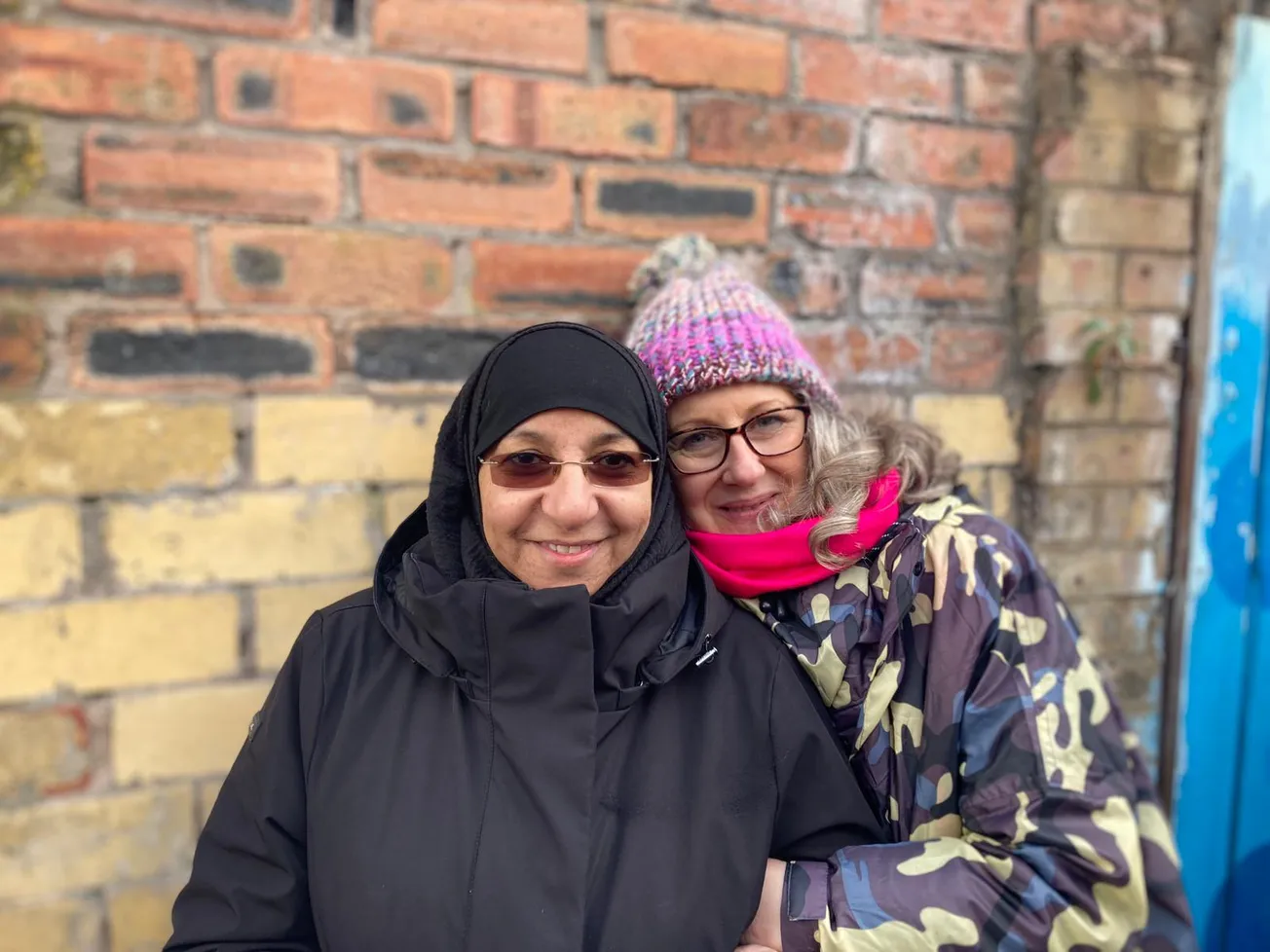
Al-Sabeen hospital has the only functioning paediatric unit in war-torn Yemen - partly thanks to a market stall in Toxteth
It wasn’t until after New Year’s Day that Dr Najla al-Sonboli told her friends in Liverpool that a bomb had hit within the vicinity of her hospital in Sana’a, Yemen. The bomb, which struck before Christmas, was launched by the Saudi-led coalition at a nearby bridge in an attempt to disrupt to the Iran-backed Houthi rebels, who control Sana’a. Instead, it hit a section of the Al-Saleh Mosque, a short walk from the Al-Sabeen hospital.
It was so close that the glass of the windows in the hospital were blown out and black smoke wafted in through their empty frames. Pregnant women were moved into the corridors and children were screaming. A YouTube video filmed by activists shows locals wandering through the wreckage and sifting rubble in the days after the strike.
Najla, who studied her PhD and masters at the Liverpool School of Tropical Medicine (LSTM), is no stranger to bombings. They occur in the city almost daily, usually at night time. Houses shake. She waited until the new year to relay the news because she didn’t want to cause alarm in the middle of her friends' celebrations. “I didn’t want to tell you before because I didn’t want to ruin your holiday,” she said in a text message.
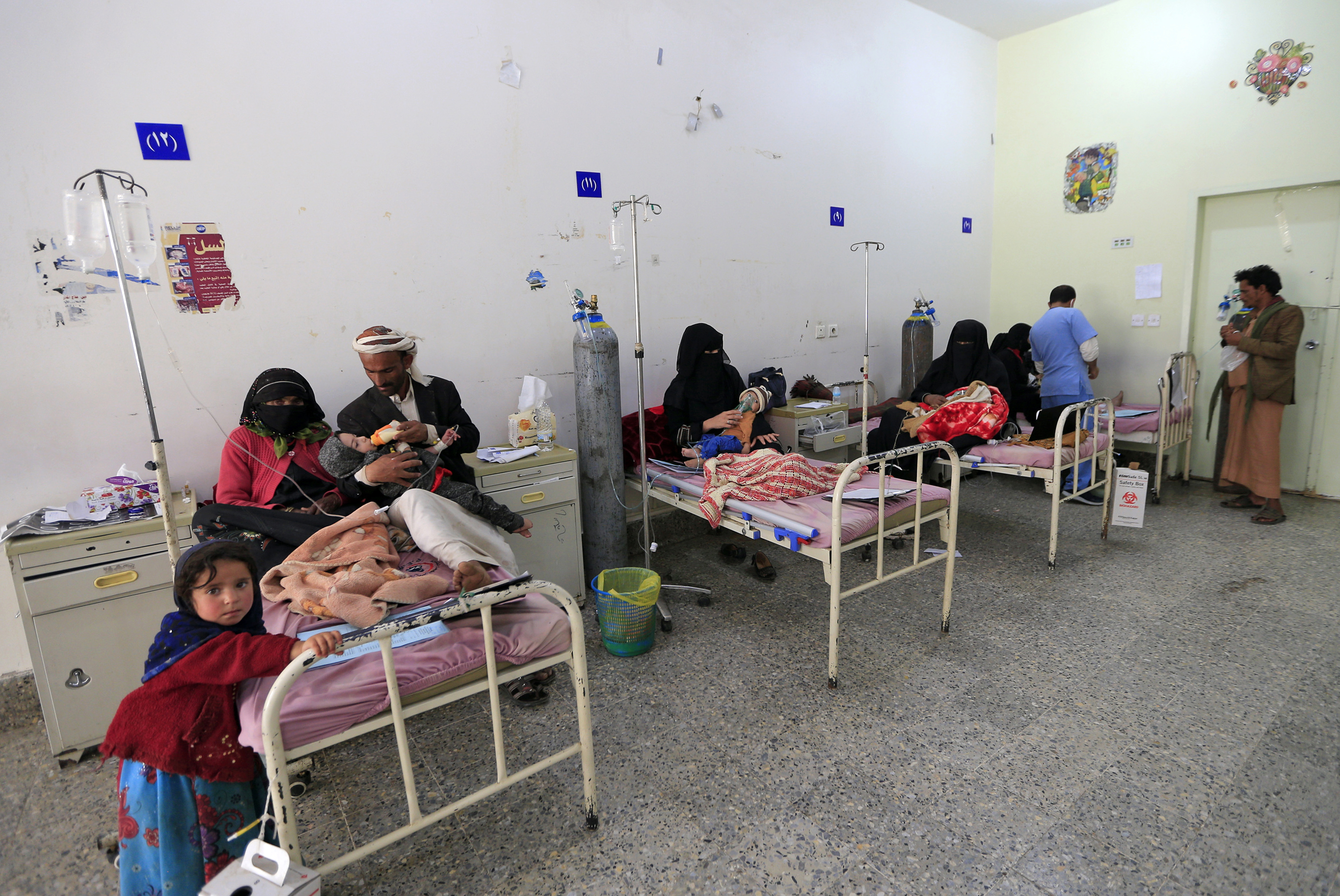
Al-Sabeen is located next to a special security forces military camp in Sana’a. Doctors sleep in their cars outside the hospital. It saves money on a bus fare they can’t afford. Some nurses walk two hours to get to work. They barely eat and they haven’t been paid for almost six years. Several staff have died of cholera, and more recently of Covid. Yemen is full of clinics and hospitals that are no longer open.
The conflict began in 2014 with the Houthi takeover of Sana’a, followed by their overall takeover of government, also known as the September 21 revolution. The existing government, led by Abdrabbuh Mansur Hadi, was driven back into the Southern Provinces before Hadi fled. After that, Saudi Arabia began a series of air strikes on Yemen in an attempt to restore Hadi’s regime.
That was 2015 — many colleagues of Najla’s left Yemen when the bombing began and she was given the same chance. But she stayed. The bombs never stopped. The now eight year long Yemen War has been described by the United Nations as the worst humanitarian crisis on the planet. In a message from the heart of it, Najla tells me the main challenges are “security and financial. We suffer from shortages of everything: food, water, oil, medicine and safety.”
Louise O’Brien is one of several people in Liverpool who have been supporting Al-Sabeen hospital for the last few years via a group called Habibti. She has never met Najla, yet their extensive correspondence means she can’t count the number of nights she has lain awake in bed staring at the ceiling and fretting for the safety of a woman 4,000 miles away.
It’s hard to talk about Najla’s character to anyone who knows her without conceding to the faint air of myth. When Louise recently interviewed a man who had met her with his wife at the hospital, he described an almost saintly aura. The themes of suffering, healing and pilgrimage lend themselves to such a reading. Al-Sabeen runs the only functioning paediatric intensive care unit in the whole of Yemen. Word spreads around far flung refugee camps, and families with sickly children often see her as their only hope, embarking on long journeys across the vast country to reach the hospital.
A group in Liverpool
Habibti grew out of the Liverpool Yemen Friendship group at the School of Tropical Medicine. Professor Sally Theobald — now the Chair in Social Science and International Health — had been good friends with Najla at LSTM, studying and working together on research grants focusing on tuberculosis. They stayed in touch after Najla had returned to Yemen and when the war broke out in 2014, she started looking for ways to help. “It started with just a few colleagues and personal donations,” she tells me.
She was keen to make connections with the Yemeni community in Liverpool and inquired at Squash — a community organisation based in Toxteth who had a stall at the Granby Street market where she met Saba Ahmed. Saba was selling vegetables at the stall and knew Louise and her sisters, who were already keenly involved in work related to Yemen. They decided to bring their efforts together with a new stall, Habibti — meaning my love in Arabic.
In the past few years, Habibti has provided “everything from a swab to ventilators,” according to Saba. They have raised over £100,000 in just the last year, between the stall and online crowdfunding pages. “Lots of people in Liverpool have taken Najla to heart,” Louise says.
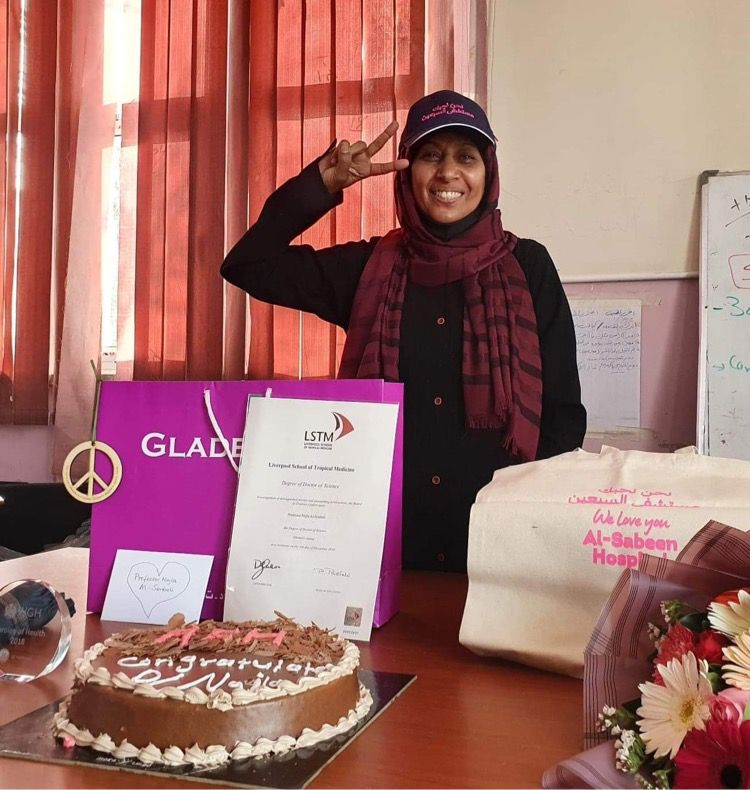
After a direct hit on the hospital in 2016 — an incident at which an emergency flare was put out — some of the money was used to rebuild the A&E reception. One ventilator paid for six months ago by supporters in Liverpool has only just been delivered. “It’s beyond imagination that you’ve got such a level of need that even within the country you can’t move things around reliably,” says Louise.
The strategic approach taken by Najla stands out to Saba. “She understands things from a holistic point of view, the importance of clothing and providing money for other things. What doctor does that?” More recently though, when they reached out to the hospital to ask about what was needed, the answer was simple: “food.”
The invasion of Ukraine has rightly dominated our news media and our collective consciousness recently, but Sally says that when people first discover the stall, they generally have no idea what is happening in Yemen. “Maybe people know there’s a war but the level of awareness is low. The war in Yemen has been going on for eight years. It makes me furious at the lack of coverage.”
Najla remembers Liverpool fondly — her discussions with her professor, Luis Cuevas, who “gave me his best knowledge in science and life,” as well as Kimos, a middle eastern restaurant on Mount Pleasant. In 2018 she was named Heroine of Health at the World Health Assembly Geneva (which Sally collected on her behalf). She was also awarded an honorary doctorate at the School of Tropical Medicine in 2019 and spoke via video link.
Across Yemen, displaced persons camps have been established to house those fleeing the areas worst affected by war. One baby, named Hussein, was brought in from one of the camps on the brink of dying from starvation. Supporters in Liverpool paid for Hussein’s travel to the hospital and his treatment. After a month of specialist care he left and returned to the camp rejuvenated and well. Six months after that, he died of chickenpox.
The market stall
Granby Street Market in Toxteth is held on the first Saturday of every month. Flanked on both sides by rows of stalls with gazebos, it pulsates with rhythm and colour – air maxes, hijabs, CND badges, aloe vera raffles, frankincense, absurdly good falafels, a group of ladies in red coats singing a remix of Bella Ciao with lyrics about fossil fuels and another song in which the grim reaper is invited to take away the Tory government.
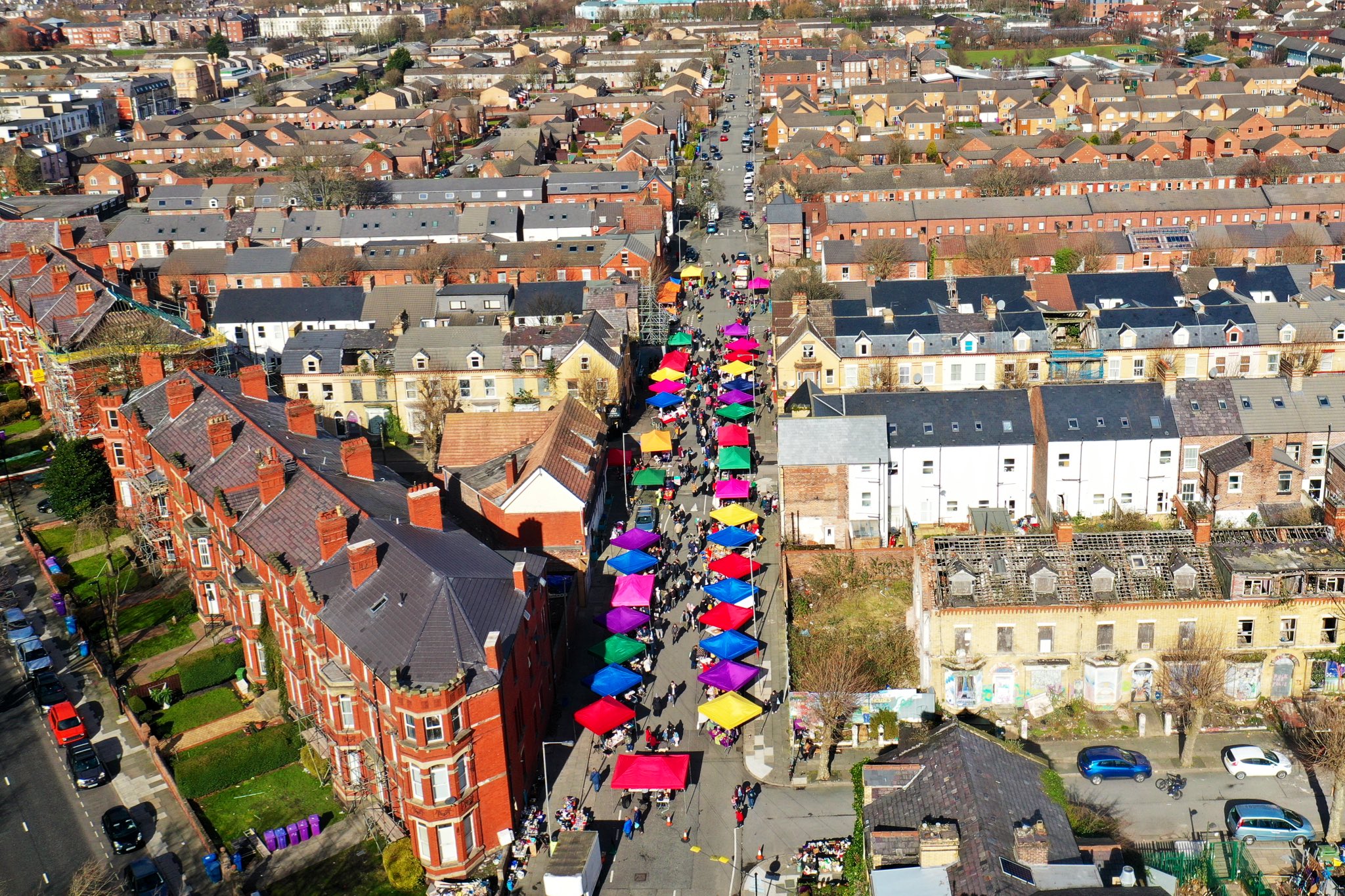
A boy pesters his mum for a wooden carving of Mo Salah’s face. His mum shows more interest in David Bowie. The boy doesn’t know who that is. Other boys play football with NOS canisters, and a massive speaker at the far end of the market envelops much of the conversation with a drum beat.
One lady bemoans a lack of sales. It seems no one is going for her dual offer of bumper bags of penne pasta or Alan Carr’s autobiography. “Ah well, whatever,” she says. It’s the first day of Ramadan and several of the non-muslims involved in the Habibti stall are also participating in the fasting as an act of solidarity.
News has broken from Yemen that the Saudi coalition and Houthi rebels have agreed to a two month ceasefire to coincide with the start of the fasting season. It’s the first time they have laid down weapons since 2016. Faiza Alasaly, a Yemeni lady and friend of Louise helping at the stall, has little confidence it will last.
Faiza was born in a small village in the mountains of Yemen and came to England in 1971 with her mother, to join her father in Sheffield. Her dad had come over in the ‘50s to look for work and was apart from her mum for 12 years. He returned to Yemen when Faiza was born and they later all came to Liverpool.
Faiza’s mum died in 2007. She had built a house in Sana'a — with coloured stained-glass windows of a style typical in Yemeni architecture. But when the communications building in Sana’a was bombed recently, the coloured stained-glass on the side of the bedroom shattered and fell in. “Thank God there were no children inside,” Faiza says. Louise uses the same phrase a few times, one that she’s picked up from elsewhere: “the country has been bombed back in time.”
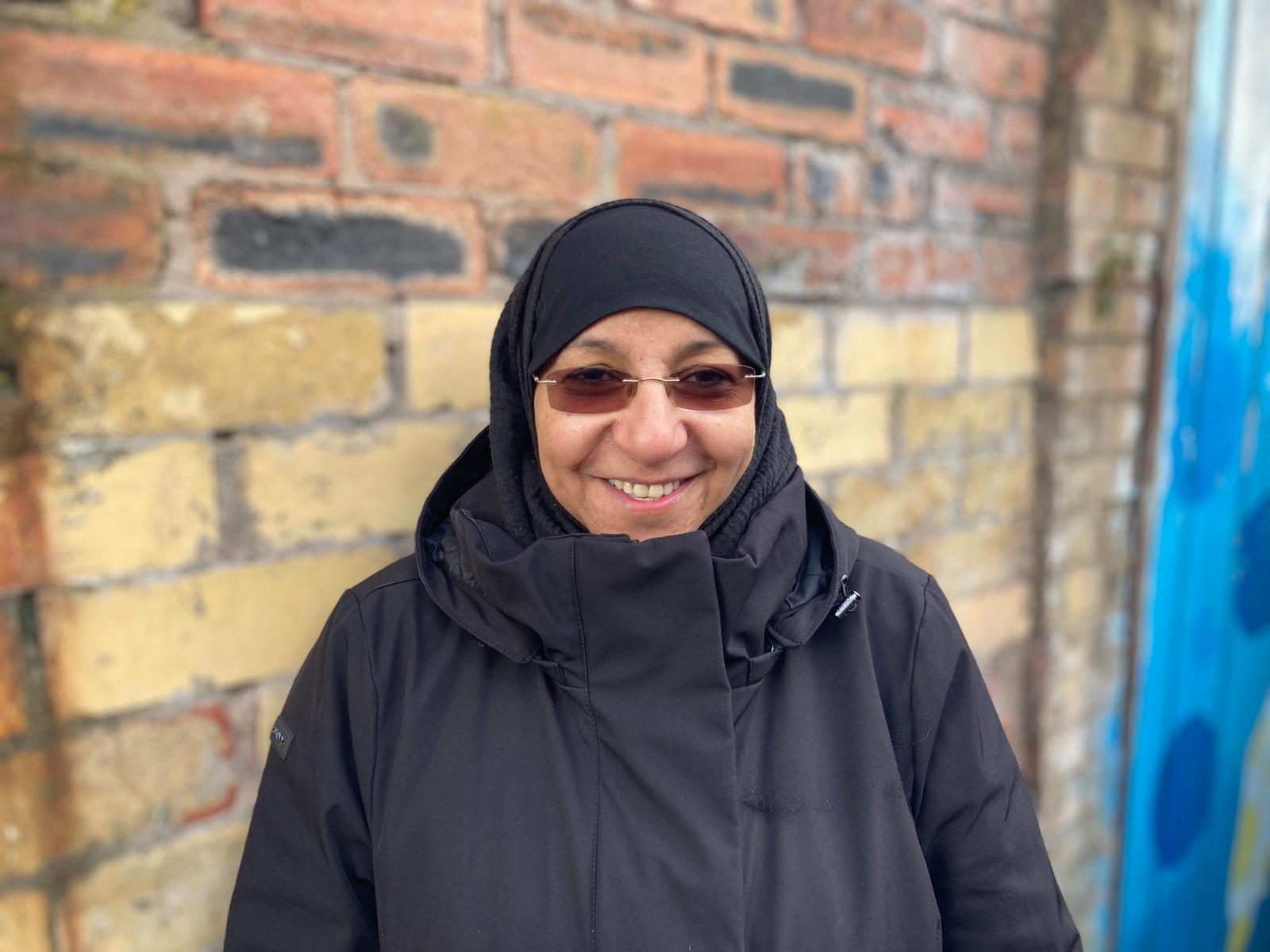
The discussion moves to why media coverage of the crisis is so minimal, and it’s not just because Yemen isn’t in Europe, says Faiza. “It’s clearly due to colour,” she says. “The people of Yemen are not blonde and blue-eyed, I’m sorry but that’s a fact.” Saba tries to use the stall to help people access better information on Yemen through search engines or social media. “When people go onto their phones all they’ll see is Will Smith smacking someone in the face. You have to make a conscious decision to make sure some of the world’s media is getting through to you.”
Faiza remembers stories passed on by her mother about living through conflict in Yemen in the 1960s. Back then, they would have to move from village to village in search of safety and because these villages were too small to support fleeing groups, individual households would take in large numbers of people. “Sometimes there would be five or six families in one house,” Faiza tells me.
Throughout the market, Louise bounces from customer to customer like an overworked restaurateur simultaneously burdened with cooking, upkeep, serving, liaising and in-house entertainment. Eight years ago, she had booked to fly out to Yemen to meet Faiza. On the day before she was due to go, news broke that all embassies in Yemen were closing and people were being told to leave the country. Her dad saw the headlines and pleaded with her not to go. A work colleague told her she didn’t want to switch on the TV and see Louise holding up a sign reading: “My captors are treating me well”.
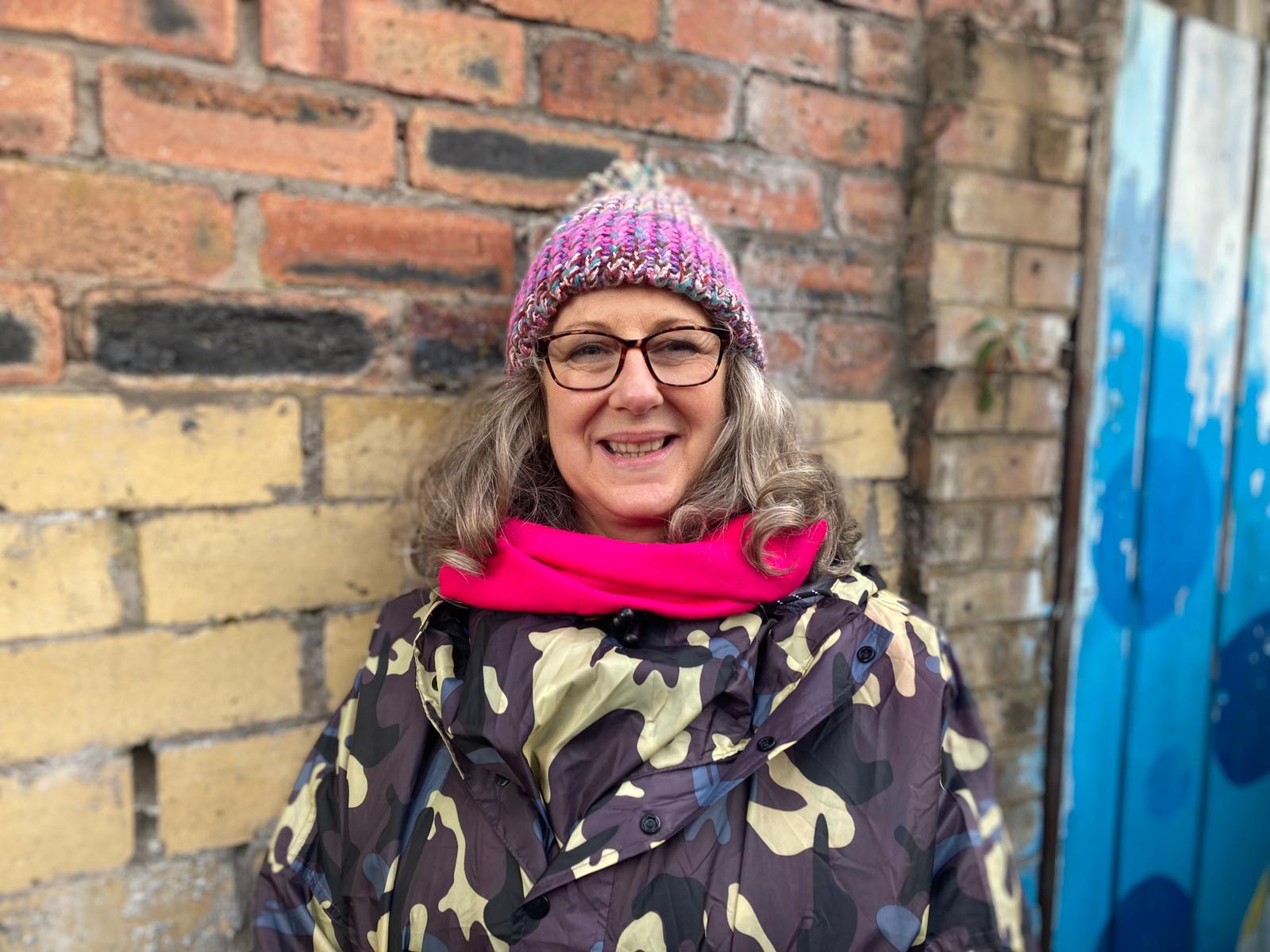
They had everything planned, from the security arrangements to practising walking. Faiza tells me that Louise has a “cat-walk strut” and that she “walks as if she’s dressed in Louis Vuitton.” Something less attention-grabbing would be required in Sana’a; head down, no swagger. Faiza was waiting in the market buying sweets for Eid when Louise rang to say she couldn’t come. I get the sense the decision still haunts her. “One day,” Faiza says in consolation, “one day”.
‘Faith and love to the children and to my Yemen’
Yemen was already the poorest country in the Arab world before the war broke out. Roughly 80% of the 30 million population is now dependent on aid. Faiza supports her uncle financially. Hundreds of thousands have been killed, directly or indirectly and some 70% of fatalities are children under five years old, because they are less able to cope with the lack of food and medical care. Millions more have been displaced. Borders are sealed and so is airspace. Yemen has become a mass of entrenched suffering cordoned off on all sides.
Recently, Louise ran an experiment. She wanted her Facebook posts to reach a wider audience, and perhaps direct more traffic towards the JustGiving page, so she decided to run a paid ad. The post reached 7,000 people, a big upgrade on the usual 700 odd. But it wasn’t all positive. One comment suggested that if the Yemeni people were so concerned about the health of their children then they should “stop breeding”. Another asked why they were raising money for “terrorists”.
Back in Sana’a, Najla works on in spite of everything. For security reasons, she couldn’t speak to me over a video call for this story, but she sent back answers to my questions via her friends. “When I see a lot of kids died inside their homes in their mother's lap by the rockets and bombs, I never care about death while I am serving them,” she says, when I ask about whether she lives and works in fear. Unfortunately, even for the kids she can help, the cycle isn’t broken. The unfortunate die, but the fortunate who live are immediately released back into the same situation, the same resource-starved camps, the same deadly hunger that led them to Al-Sabeen in the first place.
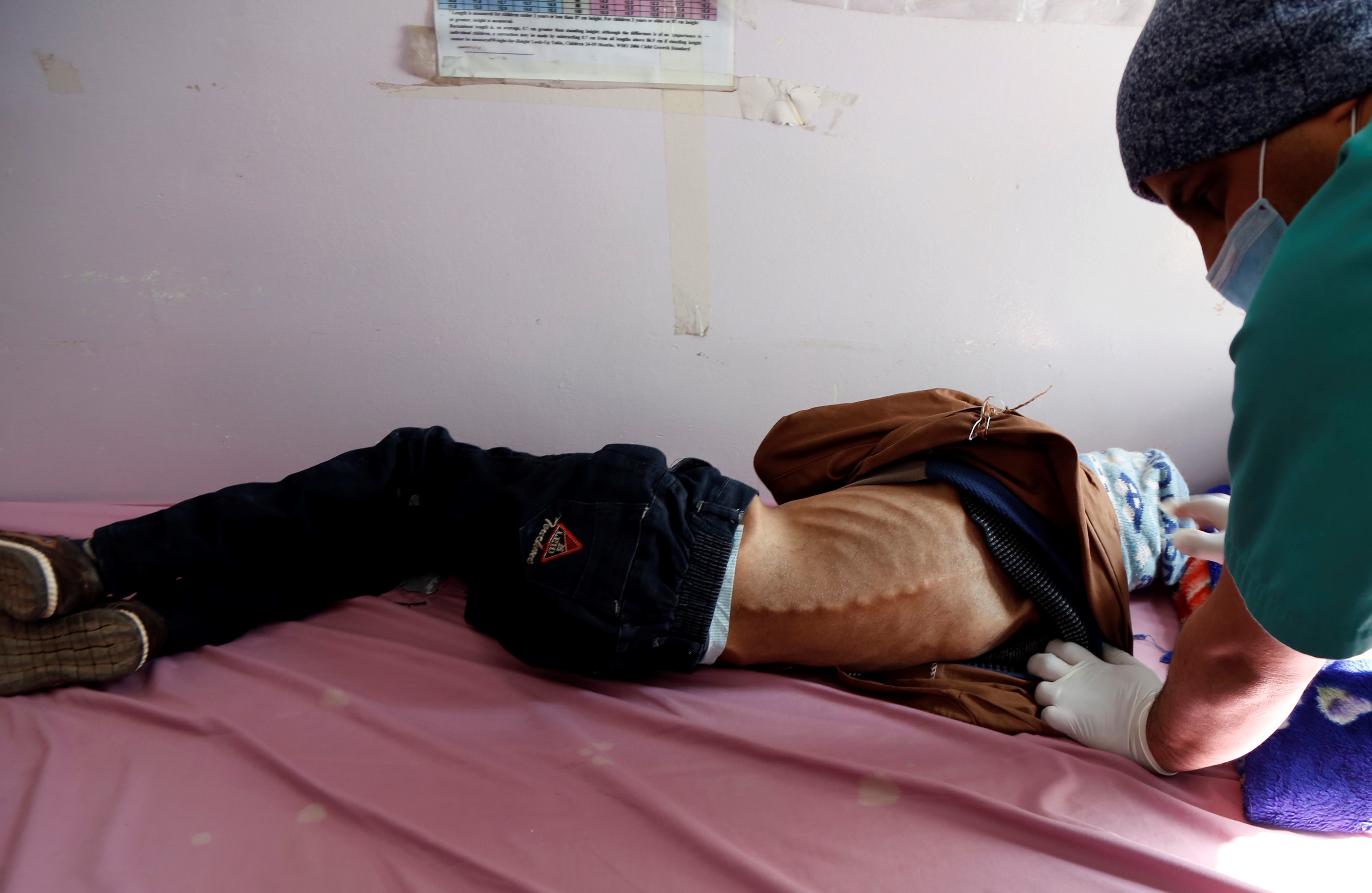
One boy at Al-Sabeen, who had a life-limiting condition, is shown to me in a photo on Faiza’s phone — his ribcage so visible through the skin of his torso it’s as though it were concealed by a sheet of cling film. He was 15 and struggled to gain weight, but vegan powdered milk sent from Habibti helped to improve his nutrition and he began showing signs of improvement. In a video he thanked those in Liverpool who had helped him. Months later he had an operation for separate reasons and ended up passing away.
“My people are so poor and so kind,” Najla tells me. “They never deserve this aggression. My faith and my love to the children and to my Yemen.” In preparation for the start of Ramadan, Habibti helped pay for 250 meals, needed by families in order to break their fast. They are arranged through a merchant but often families are unable to access them, having no reliable form of transport. When this is the case, Najla gets in her car after work and drives them herself.
If you would like to donate to Habibti’s latest fundraiser for Al-Sabeen hospital in Yemen, they have a Just Giving Page which you can find here.

Comments
Latest
‘Cutthroats and sell outs’: An editor’s note about Laurence Westgaph’s threats
Ian Byrne: Why the country — not just Liverpool — needs the Hillsborough Law
The ‘charisma bypass’: Why Liverpool’s leaders are so forgettable
The Mersey’s clean-up cost £8 billion. So why is it still so dirty?
In a time of crisis, a Yemeni doctor found friends from her past
Al-Sabeen hospital has the only functioning paediatric unit in war-torn Yemen - partly thanks to a market stall in Toxteth